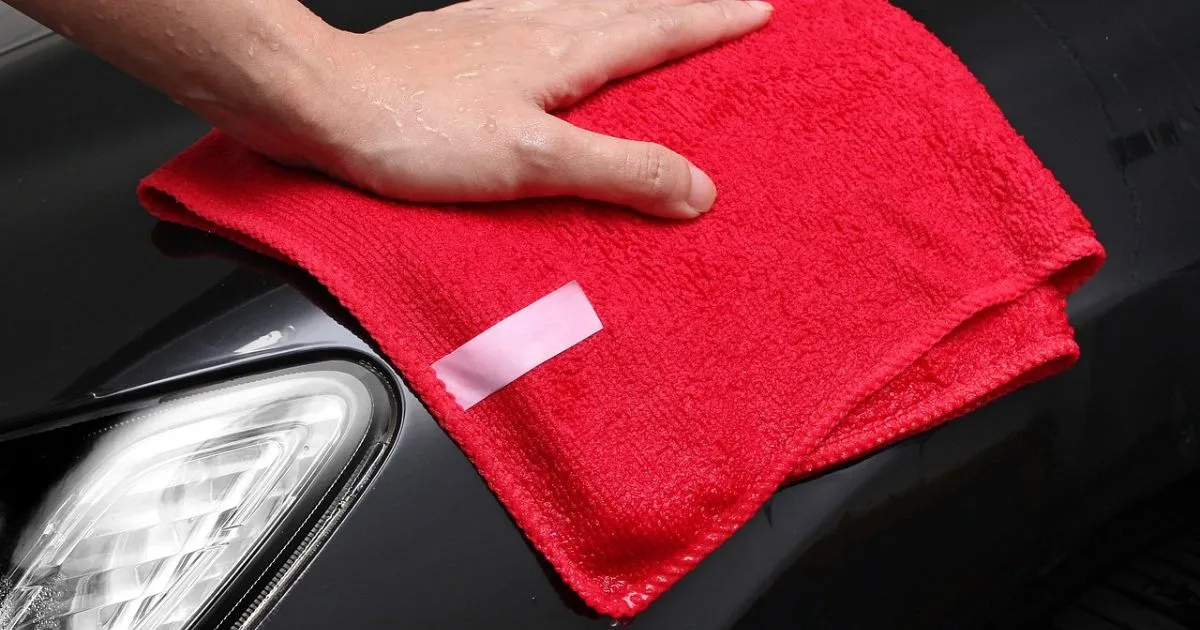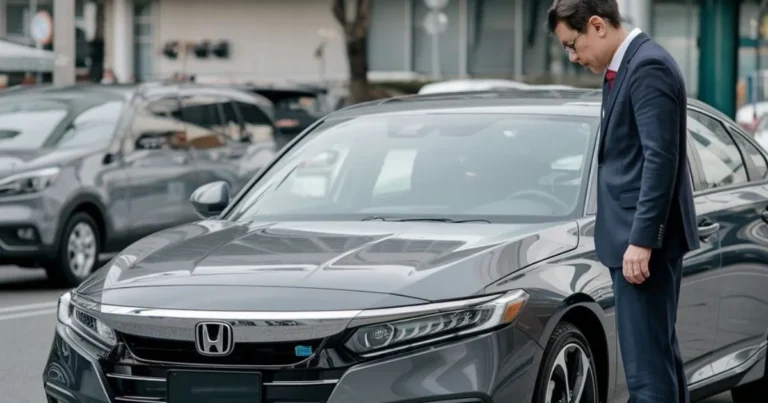Eco Friendly Car Wash: 5 Professional Secrets Revealed
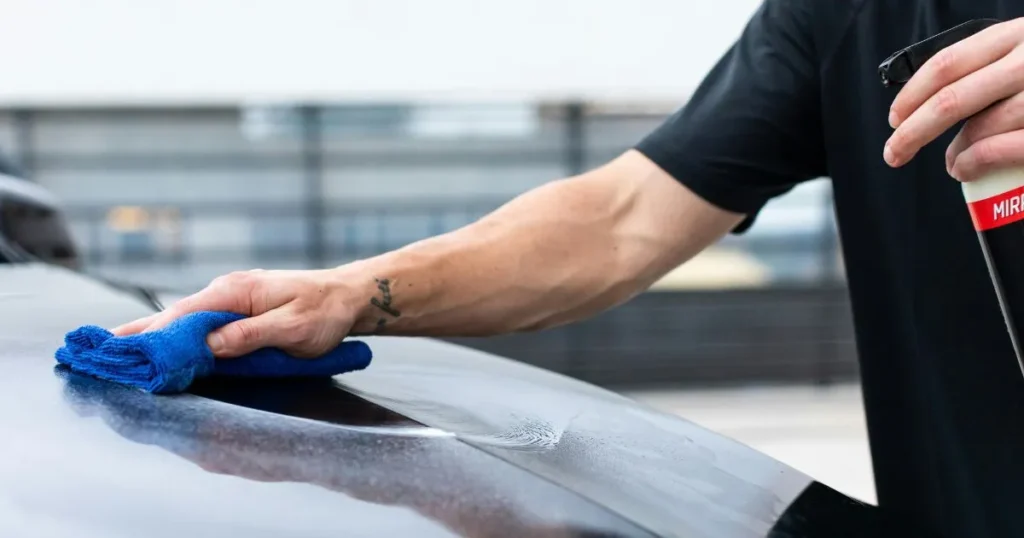
Washing your car is an essential part of vehicle maintenance, but traditional methods can have a significant environmental impact. An eco friendly car wash not only helps reduce water usage but also prevents harmful chemicals from contaminating local sewer systems. This guide will show you how to wash your car sustainably, offering practical tips and methods that benefit both your vehicle and the planet.
Why Choose an Eco Friendly Car Wash?
Washing your car at home or at a commercial car wash can use hundreds of gallons of water and contribute to water pollution. Opting for eco-friendly methods ensures that storm drains remain free from hazardous runoff, and it helps conserve water—an increasingly valuable resource.

Benefits of an Eco-Friendly Car Wash:
- Conserves Water: Eco-friendly practices can save gallons of water compared to traditional washing.
- Protects Water Systems: Prevents harmful chemicals from entering sewer systems.
- Saves Money: Reduces water and chemical costs.
- Supports Environmental Responsibility: Reduces the overall environmental impact of maintaining a vehicle.
1. Washing Your Car at Home: Eco-Friendly Techniques
Washing your own car can be eco-friendly when done with care. Here are some ways to make your home car wash sustainable.
Use High-Pressure Water Nozzles A standard garden hose can waste up to 10 gallons of water per minute. High-pressure water nozzles reduce water flow, helping you use water more efficiently. This simple switch can save water while providing the pressure needed for thorough cleaning.
Biodegradable Soap Matters Using non-biodegradable soaps during home car washes can release phosphates that are harmful to aquatic life. The Natural Resources Defense Council explains that even small quantities of these chemicals can lead to significant water pollution issues.
Follow These Steps for an Eco-Friendly Car Wash:
- Park on a permeable surface, like gravel or grass, to prevent water runoff into storm drains.
- Fill a bucket with soapy water, and limit hose usage to rinsing.
- Use a sponge to wash your car and rinse sections individually.
- Dispose of leftover soapy water properly—never let it drain into the street.
Read more about why parking location matters when washing at home: Car Wash at Home.
2. Eco-Friendly Commercial Car Wash Options
Sometimes, a DIY wash isn’t feasible, or you may prefer a professional finish. In these cases, choosing a commercial car wash with sustainable practices is the next best option.
Benefits of Eco-Friendly Commercial Car Washes:
- Recycling the Water: Many sustainable commercial car washes implement advanced water recycling systems, reusing up to 85% of the water used per wash. The International Carwash Association outlines how these technologies reduce environmental impact while maintaining high cleaning standards.
- Environmentally Safe Detergents: Reputable facilities often use eco-friendly products that are less harmful to the environment.
How to Choose the Right Facility:
- Look for certifications indicating sustainable practices.
- Ask if they use water recycling systems or energy-efficient equipment.
To understand more about the technology behind modern car washes, check out this guide on vehicle maintenance: Ultimate Vehicle Maintenance Log.
3. Water Conservation Tips for Washing Your Vehicle at Home
An eco-friendly car wash is not just about the products you use but also how you use water. Implementing water conservation techniques makes a big difference.
Techniques to Save Water While Washing Your Car:
- Two-Bucket Method: Use one bucket for soapy water and one for rinsing your sponge. This reduces water waste.
- Avoid Constant Running Water: Turn off the hose when you’re not actively rinsing.
- Invest in a Waterless Car Wash Product: These sprays clean your car without any water, providing an effective way to maintain a clean car.
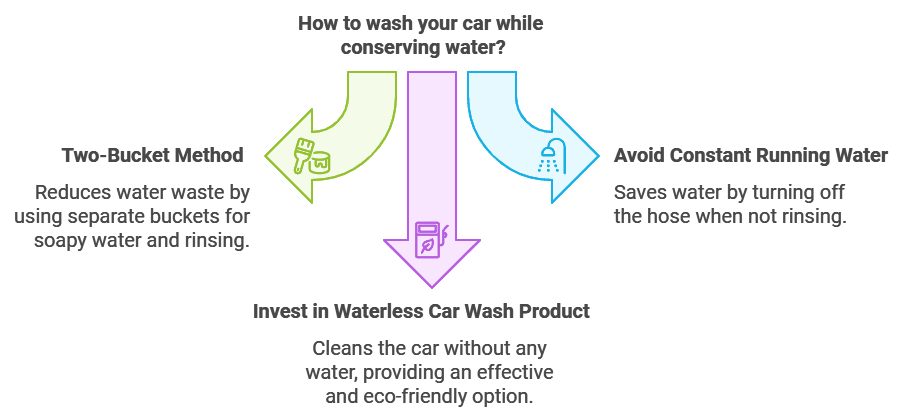
Did you know? The average home car wash can use up to 100 gallons of water, highlighting the importance of conservation practices. The US Geological Survey notes that water conservation is essential, especially in areas prone to drought.
Get more insights into efficient water use: Driving Tips.
4. The Environmental Impact of Traditional Car Washes
It’s essential to understand the negative effects of traditional car washing practices. Washing a vehicle at home without precautions can lead to contaminated water entering storm drains and eventually reaching natural water bodies.
Environmental Concerns of Traditional Car Washing:
- Runoff Contamination: Soap, grime, and oil from washing your car can enter storm drains and affect local wildlife. Runoff contamination from car washing can introduce harmful chemicals into storm drains, ultimately affecting waterways and wildlife. According to the Environmental Protection Agency, stormwater pollution is a significant contributor to water quality issues in the U.S.
- High Water Consumption: Washing with a regular hose can use up to 10 gallons per minute.
- Chemicals in Water Supply: Harmful substances from non-biodegradable detergents can end up in water systems, impacting both wildlife and human health.
Switching to eco-friendly practices significantly reduces this impact, aligning with broader sustainability goals.
5. Best Practices for a Sustainable Car Wash
To ensure your car wash is truly eco-friendly, adopt these best practices:
Tips for a Greener Car Cleaning Routine:
- Choose Biodegradable and Non-Toxic Products: From soaps to waxes, opt for products that do not harm the environment.
- Use Microfiber Cloths: These are reusable, require less water, and are effective at trapping dirt.
- Limit Water Use: Aim to use less than 50 gallons for a full wash.
Additional Tips:
- Wash your car in the early morning or late afternoon to minimize water evaporation.
- Regularly clean your car to avoid buildup that requires more intensive washing.
For more on vehicle maintenance, visit Is Driving Hard?.
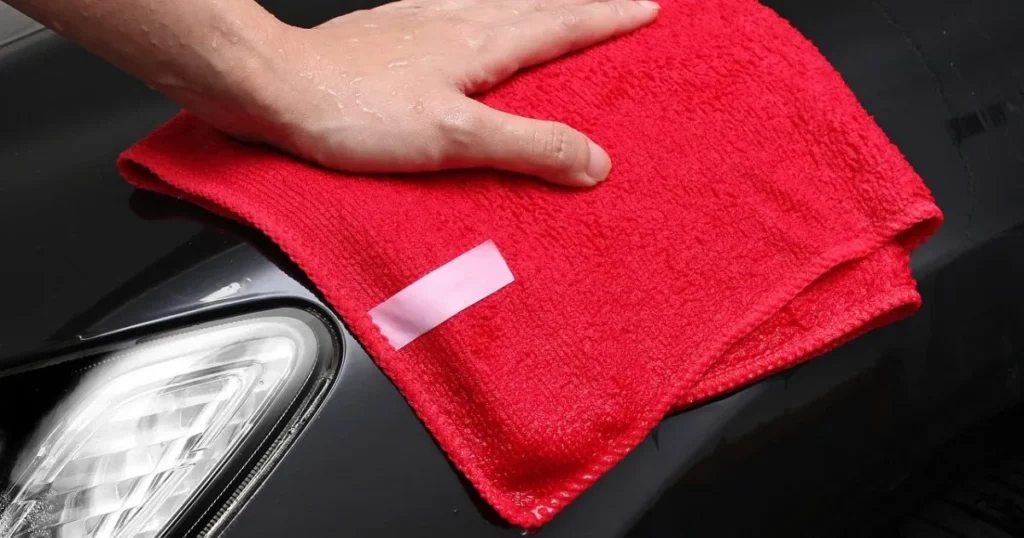
Conclusion
Choosing eco-friendly car wash methods is not just beneficial for the environment but also saves water, money, and helps maintain your car in top condition. By making small adjustments such as using biodegradable soap, adopting the two-bucket method, or visiting a sustainable commercial car wash, you contribute to a healthier planet. Ready to take action? Start incorporating these practices today and make a positive environmental impact!
Explore more ways to care for your car sustainably: Remove Water Spots from Car and Ultimate Vehicle Maintenance Log Templates.
Let me know if you would like any adjustments or further refinements to this article!
There are no reviews yet. Be the first one to write one.

